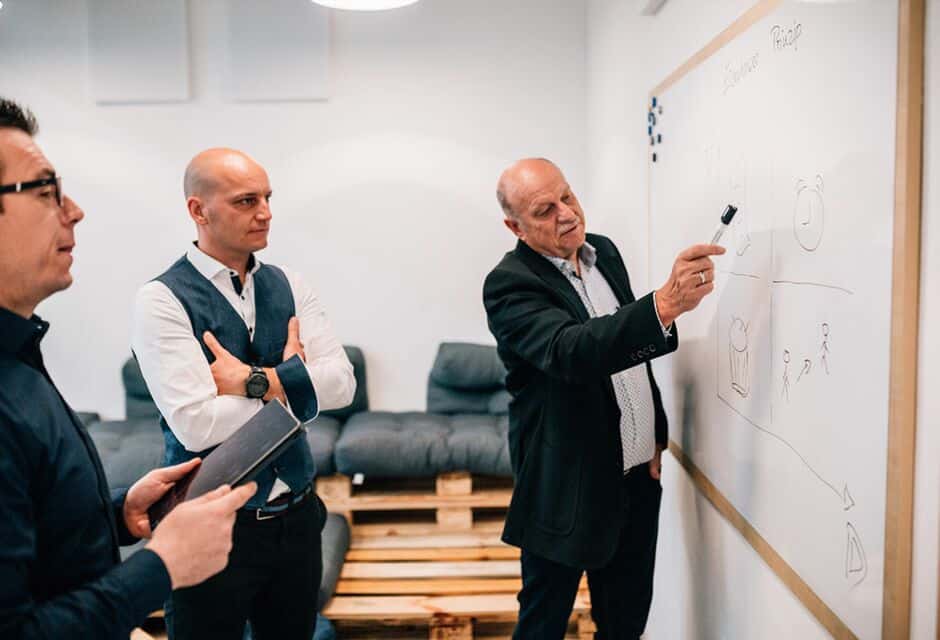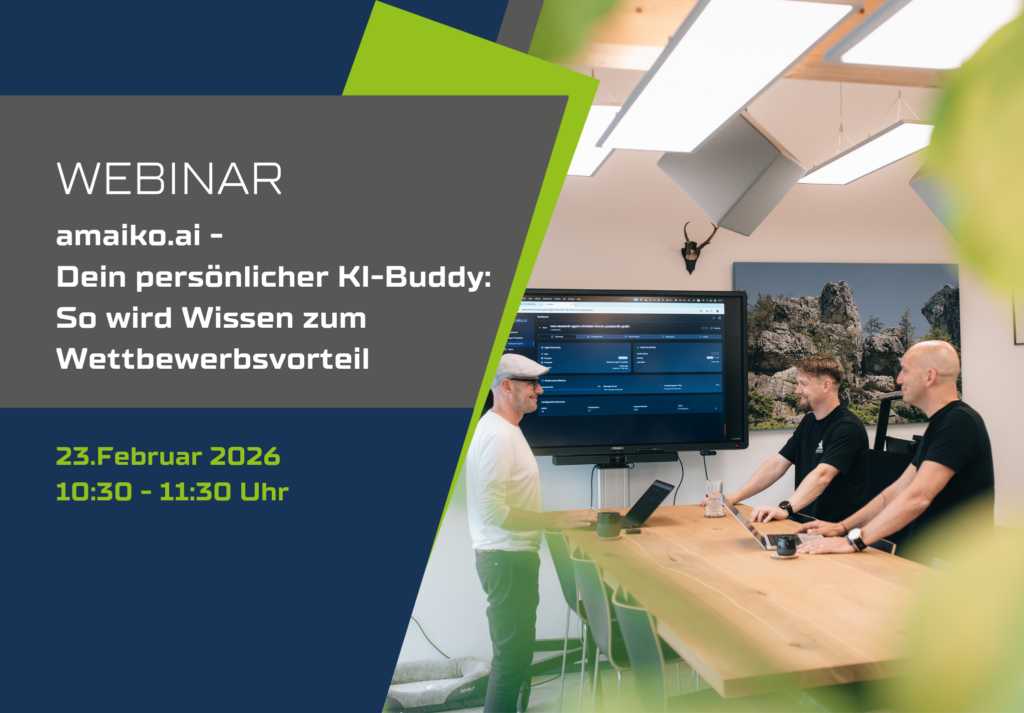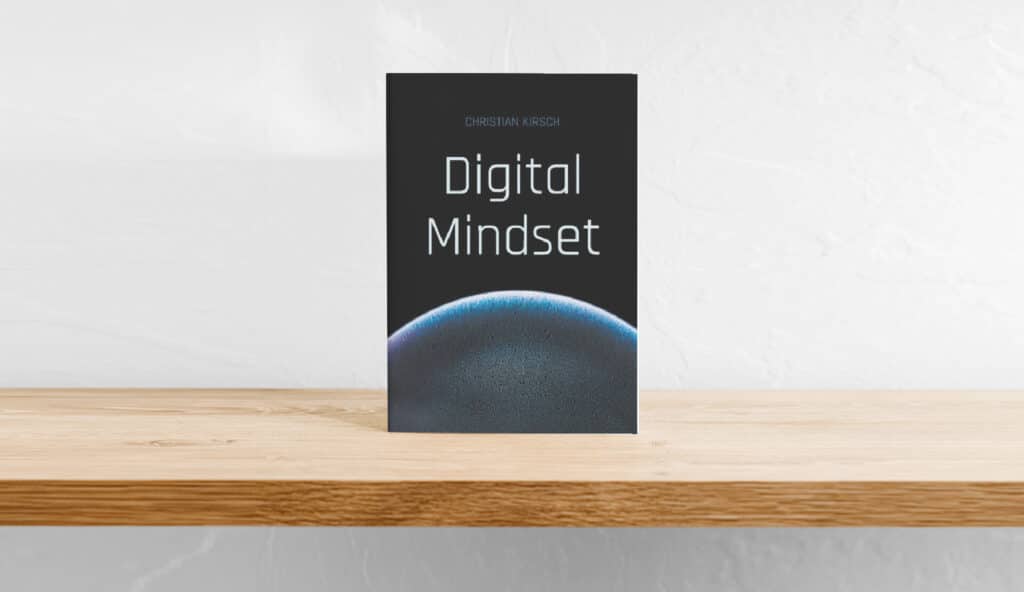Are we currently experiencing what we envision for the working world of the future? The current coronavirus crisis is putting us all to the test. It feels like many things are happening earlier - more working from home, more location-independence, less face-to-face.
Just pop over to the colleague at the table and ask for information? That's often not possible. We have to look for alternatives, reach for our smartphone, start a video conference or do some quick research ourselves if we want to know something.
This form of working will be with us for some time to come. Not just out of necessity, but because it is equally attractive.
An international Delphi study on the "future of work" in 2050 (Millennium Project, Bertelsmann Foundation) shows that companies will have to adapt to even more flexible working environments.
Working from home, constant job changes, self-determined working and lots of virtual meetings will shape the way we work together even more.
Another strong trend is that work is increasingly taking place in the form of knowledge-based projects. New ideas want to be implemented immediately. Technical experts who have never worked together before spontaneously put their heads together. They need to access information and knowledge to quickly familiarize themselves with a project - digitally and in real time, of course.
But how can companies better prepare for this today? How can knowledge be secured for the future and made available in the best possible way?
Intelligent knowledge management and a modern knowledge culture - these are the areas that should become active components of business processes. Find out in this article how companies can establish successful knowledge management.
Knowledge management in the new 20s
We are in the midst of a demographic change. The "baby boomer" generation, born between 1955 and 1969, is entering well-deserved retirement. This means that valuable specialist knowledge and experience is disappearing.
And the next generations? Gen Y and millennials are constantly online. They live and breathe networking and prefer flexible working. Millennials show initiative and have lots of ideas. Various projects and specialist careers are often more important to them than management positions.
Gen Z is completely digital. There is hardly any difference between virtual and real work. Self-discovery and free development are an integral part of life for the latest generation, those born from 1994 onwards. Private life is once again a higher priority. The desire for working from home and flexible working hours is growing. They like to try out new jobs and - just like Gen Y - prefer project-based work.
But what does this mean for companies?
One thing is clear: the new generations often take new paths and no longer commit to one employer for life! The resulting increased fluctuation causes a loss of knowledge. This is because knowledge is usually tied to the individual and cannot be reconstructed or bought in.
Companies also have to be prepared for higher onboarding costs as soon as new employees join the company.
But don't worry, there are not only hurdles! The high level of adaptability and the urge for self-realization bring independent lateral thinkers to the job market. Instead of being given tasks, they propose projects themselves. They are committed and build up knowledge on their own initiative.
However, they need one thing above all: digital and intuitive platforms to quickly access the right information. The desire for project work also creates many cross-departmental and cross-company teams, which often include external employees. Centralized knowledge management is extremely important so that everyone involved can work together productively! But what does that actually mean? Let's take a closer look.
What does knowledge management actually mean?
Knowledge management is a method for organizing the use and dissemination of knowledge within a company.
Traditionally, knowledge is scattered across all departments. The main task of companies is to identify this knowledge and make it available to others.
This can affect individuals or even larger departments. Employees bring with them different forms of knowledge and information that need to be linked and managed on platforms.
The management of knowledge is a huge challenge when you look at the variety of different types of knowledge that exist in companies:
- Specialist knowledge of products, topics and processes
- Methodological knowledge of procedures and processes
- Relational knowledge about colleagues and contact persons
- Organizational knowledge of the company's history
- Knowledge from projects, such as project results
- Knowledge of work organization, such as file and filing systems
These are the core tasks of knowledge management
Companies are faced with a number of tasks in order to secure knowledge for the future and make it available intelligently in the world of digitalization. They need to transform individual knowledge into a collective wealth of knowledge. However, this does not just mean management from the executive floor.
Quite the opposite. In order to achieve the best possible handling of knowledge, it is necessary to actively use knowledge. This can only work with a communicative corporate atmosphere in which employees are happy to pass on their knowledge themselves.
Get an overview of the tasks of knowledge management:
- Capturing experts and knowledge carriers
- Bringing experts together
- Motivation to share knowledge
- Secure, manage and document knowledge so that it is put to good use
- Creation of a central platform for the exchange of knowledge
- Intelligent networking of knowledge
- Making knowledge findable with quick search functions
- Comprehensible and clear presentation of knowledge
- Support for an open knowledge culture
Advantages of knowledge management
Those who know a lot have a clear advantage. Companies that secure knowledge for the long term and cultivate an open knowledge culture work more easily, efficiently and progressively.
But see for yourself. We have summarized the most important opportunities and benefits of knowledge management below.
With a knowledge management system tailored to the company, you can:
... colleagues without any problems.
... train employees more quickly.
... pass on our experience.
... find answers faster.
... provide employees with optimal training.
... reduce recurring errors.
... avoid multiple searches.
... minimize redundant work.
... promote innovation.
... implement projects more qualitatively.
... experts in the right place.
... create competitive advantages.
... save time and money.
Processes become knowledge carriers
Every day, employees work in processes and contribute their experience and knowledge. Knowledge management is therefore directly linked to individual processes.
Driven by digitalization, globalization and higher customer demands, processes require ever faster reactions and adjustments.
But how can this be achieved?
The successful establishment of processes requires an optimal combination of standardization in the right places, extensive knowledge and the openness to react creatively and flexibly to changes.
By linking your corporate knowledge with processes and the associated responsibilities, tasks and content, it is easier to advance corporate goals.
This also includes recognizing, understanding and evaluating company processes. But say goodbye to pure process documentation, as was the case in the past. Under no circumstances should it just end up as a documentary corpse in the cellar and never be looked at again.
It is much more important to establish a process organization that is adapted to your company and to develop processes into meaningful knowledge carriers.
Process-oriented knowledge management should promote the creation, use and sharing of knowledge in a targeted manner!
You can use a range of tools to successfully link processes and knowledge. We will show you what these are in more detail below.
Welcome back - clever knowledge networking on the intranet
You probably surf your company's intranet yourself from time to time or have already had contact with it.
Do you know this? News appears that isn't really news at all. Or you are looking for important information material on the intranet that simply cannot be found?
Are you sometimes unsure whether another employee has already worked on the same topic? Then you have to go through the hassle of making several phone calls to get information or you prefer to work on the content from scratch.
But a modern intranet can be so much more!
It can become a meeting place for internal and external experts who publish content and presentations so that everyone can benefit when needed.
The intranet can also be a wiki that provides the necessary specialist content.
It can become the "single point of truth" where documents and processes are meaningfully linked.
For advanced knowledge management, companies should update their intranet and enable fast and clear searches.
This is the only way to ensure that employees can easily network and share their wealth of knowledge.
Digital mindset - it's all in the attitude
Successful knowledge management requires employees who are motivated, want to pass on knowledge and are happy to try out technologies.
Unfortunately, it is often the case that employees are afraid of introducing new technologies or are reluctant to share knowledge.
In this case, companies need change management. Sensitivity is required. This is the only way companies can accompany their employees on the digital journey to an open knowledge culture.
What counts is a digital mindset. But what exactly does that mean?
It is the attitude that is characterized by curiosity and interest in new technologies. Employees with a strong digital mindset recognize the added value of digital processes, bring them to life and willingly pass on their knowledge.
The question quickly arises as to whether a digital mindset can be created? The answer is clearly yes.
Easily accessible work platforms, clear responsibilities, intelligent search functions and open communication strengthen the acceptance and openness of digital solutions in knowledge management. Thinking outside the box, expanding the wealth of knowledge and living an open feedback culture - with these factors, successful digitalization and knowledge management projects succeed.
Would you like to know more?
Just get in touch. We are absolutely open to your concerns in the areas of knowledge management, knowledge culture and digital workplaces.




